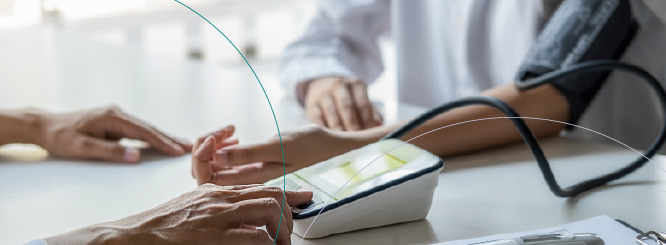
It’s no secret that medicine has long prioritized men’s health, from using their condition as a sole example for medical research to discarding or misdiagnosing whatever women were going through as hysteria. It wasn’t until the 20th century that women began a political movement in order to gain equal health care, especially when it came to female reproductive rights; this movement was also important when it came to studying how different illnesses and conditions affect men and women differently.
Women’s health, along with their rights to proper care and ownership of their bodies, has come a long way in the last few decades, this is due to the political movements that made this progress happen and to the emerging medical and clinical research that has finally focused on females as their sole study cases. This new research has shown a new light on how different illnesses or conditions affect females differently than males, such as obesity, depression, cancer, and reproductive issues.
One disease in particular is hyperthyroidism and female patients are more likely to have it than male ones. According to the American Thyroid Association, one in every eight women will develop thyroid issues in their lifestyle, whether it’s hyperthyroidism or hypothyroidism.
This article will mainly focus on the symptoms that females experience when they have hyperthyroidism, as well as a brief explanation on what this disease entails and why it mostly affects women.
At LIMARP®, we care about our patient’s health and we strive to provide the best medical attention possible. Our team, led by Dr. Liza María Pompa González, is highly qualified to provide the information and treatment you need, as well as to guide you and answer any questions that may arise during and after your initial consultation.
The information we’re about to present about hyperthyroidism and its symptoms in females is general and illustrative, so it may not apply to every case; this is why it’s important to contact your doctor if you start seeing any irregularities or if you’re experiencing any uncomfortable symptoms.
Hyperthyroidism: What is it?
First of all, it’s important to identify the importance of the thyroid gland, since proper thyroid function is essential for your overall health and well-being. This gland secretes hormones that affect the human body in several ways, such as heart rate regulation, body temperature, achieving healthier skin, and your metabolism. When it comes to thyroid issues, the gland can be either overactive (hyperthyroidism) or underactive (hypothyroidism). This means that the gland produces an abnormal amount of hormones that may result in many non-specific symptoms.
When it comes to hyperthyroidism, the gland produces too much of the thyroid hormones. Hyperthyroidism can affect anyone, but it’s about 10 times more common in females and it typically happens when they’re within the 20 to 40 age range[1]. Some of the causes as to why females may develop hyperthyroidism include:
- High levels of the 2 main thyroid hormones, triiodothyronine and thyroxine in the body
- Thyroid nodules
- Some types of medicine
- For females, high levels of human chorionic gonadotropin in the body, which is common in early pregnancy, a multiple pregnancy, or a molar pregnancy
- A pituitary adenoma
- Thyroiditis
- Thyroid cancer
Another cause for hyperthyroidism is Grave’s disease, an autoimmune condition where the immune system mistakenly attacks the thyroid, causing it to become overactive. This disease mostly affects young or middle-aged female patients, in fact females are 5 to 10 times more likely to develop the condition[2]. Excessive weight loss is one of the main symptoms of Grave’s disease because the bodily processes are accelerated due to overstimulation of the thyroid, causing an increase in the patient’s basal metabolism. The body will break down fuel at a rate faster than it can replenish it, no matter how much food a person eats, to the point of using bone and muscle as a source of energy[3].
There are several ways to treat this disease, but one of its main risks include sudden weight gain because the thyroid may become underactive. This complicates the female patient’s situation and it can be hard to manage. This is why the patients should be in constant communication with their doctor so that they can receive the proper treatment which may include lifestyle changes. A healthy, well-balanced diet and regular exercise, in addition to any prescribed medication, are some of the best ways to keep the weight off and manage hyperthyroidism.
Now that we know more about hyperthyroidism and some of its causes, let’s talk about its symptoms in females and why some women may be more at risk than others. As always, we’d like to remind you that each case is different and not all information may apply to you. However, if you recognize any of the following hyperthyroidism symptoms, make sure to speak with your doctor right away so that they can properly diagnose you.
Hyperthyroidism Symptoms in Females
As we have mentioned before, some diseases affect males and females differently; they might coincide with some symptoms, but it’s important for women to also be aware that some irregularities they may notice can be cause for concern and not just a one-off thing. So, for this section of the article we’d like to discuss some symptoms and how hyperthyroidism affects females.
First, let’s go over the symptoms. If you’re a female and think that you may have hyperthyroidism, these are some of the most common symptoms:
- Sudden weight loss
- Eating more than usual
- Irregular heartbeat
- Nervousness or anxiety
- Feeling irritable
- Trouble sleeping
- Trembling in hands and fingers
- Increased sweating
- Hot flashes
- Muscle weakness
- Diarrhea or more bowel movements than normal
- Fewer and lighter menstrual periods than normal
- Changes in your eyes that can include bulging of the eyes, redness, or irritation
These are some of the main symptoms for hyperthyroidism and it’s also important to point out that it raises the risk for osteoporosis, a condition that causes weak bones that break easily. Hyperthyroidism might affect the bones before you have any of the other symptoms of the condition become apparent, especially for females who have gone through menopause or are already at risk of developing osteoporosis[4].
When it comes to menstrual problems, females with hypothyroidism can develop amenorrhea and early menopause. This can also lead to problems when they’re trying to get pregnant or complications during the pregnancy. If you’re a female and are experiencing any of the aforementioned symptoms, you may have hyperthyroidism, which is why we recommend that you schedule an appointment with your doctor.
Contact Us to Learn More
If you want to learn more about hypothyroidism symptoms in females, schedule an appointment with one of our doctors. We can help determine the right treatment for you. Contact us online anytime or give us a call at (619) 373-0229.
References
- [1] “Overactive thyroid (hyperthyroidism)”. https://www.nhs.uk/conditions/overactive-thyroid-hyperthyroidism/. (Accessed February 20, 2023).
- [2] “Graves’ Disease”. https://rarediseases.org/rare-diseases/graves-disease/. (Accessed February 20, 2023).
- [3, 4] “Graves’ Disease and Weight Loss: What You Need To Know”. https://healthmatch.io/graves-disease/graves-disease-and-weight-loss. (Accessed February 20, 2023).


